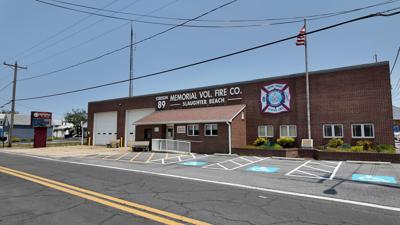SUSSEX COUNTY, Del. – Fire and EMS calls in Sussex County are climbing, and a new in-depth financial review presented to the Sussex County Council is calling for sweeping changes in how emergency services are funded and managed.
The report, compiled by FACETS Consulting, analyzed the financial procedure, not operations, of all 24 fire companies across the county (though FACETS noted Mid-Sussex Rescue Squad did not participate in this study). FACETS Principal Kevin Roche said, “We were really welcomed with open arms by almost every company.” The review included interviews with each company’s president and often board members and chiefs.
The consultants examined a wide range of documentation, including audits, budget statements, grant applications, fleet inventories, debt schedules, volunteer logs, billing contracts, and more. The study found that fire companies spend most of their money on personnel. Despite the differences among companies, Roche said, “We did not note any financial irregularities, [but] we did note the leadership of most departments is aging.”
The report highlighted the growing strain on emergency services. According to FACETS, there are roughly 550 paid fire and EMS workers and 1,853 volunteers countywide, but only 29 percent are active responders.
“Only 29 percent of the total volunteers are responding,” said FACETS consultant Natasha Nau. “We’re dealing with, ‘Hey, we join the rolls, but we’re not really actively jumping on a truck or an ambulance and responding.’”
The report showed that primary funding for these companies comes from state and county contributions, along with EMS billing revenue—if the company provides EMS, which two do not.
Financial stability varies greatly. Some companies are operating “hand-to-mouth,” while others hold significant reserves. Most scored between 60 and 79 on FACETS’ financial scale. Only Dagsboro received a red grade, which the consultants attributed to a one-time accelerated debt payment that affected multiple scoring factors.
“This county has been served for a very long time by a number of fire companies that have a very proud history of service to the community,” Roche said. However, he added that volunteerism is declining countywide, and the cost of fire trucks and other apparatus has risen dramatically—doubling or even tripling over the past decade.
Roche emphasized the system’s organic, unplanned growth. “There's no plan that we know of that decided where each station would be. They kind of grew up around the needs in their communities.”
Key recommendations from the report include:
County oversight and strategic planning: FACETS recommends collaboration between the county and the fire companies to develop a long-term plan. FACETS said specifically having more "rigorous purchasing policies" would be beneficial. “Right now, for example, if a company decided that they wanted to buy a 100-foot boat [...] if their board voted for it, they could do it,” Roche said. “But what value does it bring to the system? What debt does it put on the folks that live in that district or on the county?”
EMS billing reform: Currently, each department negotiates its own EMS billing contract. FACETS suggests the county centralize this process to reduce costs and administrative burdens. Some companies are being charged double for the same billing service, according to Nau.
Fire service fee: FACETS recommends the county implement a fire service fee allowed under state law. Roche said it should be distributed to the company where it’s generated. “Companies that have larger population or development should get that fee because it reflects the load that they're going to have in their area.”
"Ultimately, a significant and sustainable infusion of funding is needed to help all of Sussex County’s independent non-profit fire/EMS companies meet current service-level expectations and future demand," the report reads.
Lewes local Juliet Bercaw voiced support for increased county oversight. “If the county is sort of controlling it, then I think we’d have a wider net to cast than we would just with the city,” she said.
The idea of a new fee drew mixed reactions. Cynthia Opderbeck said, “I’d be in favor of it. I think it’s important, although I would like to see that it wasn’t excessive.” She added, “If we’re being taxed for it, we need to know that our representatives are managing it—making sure that it’s fiscally sound and appropriate.”
FACETS also recommended better grant coordination, as only 11 out of 23 companies sought grants, with nine awarded. They also proposed a county-managed pool of ambulances to temporarily loan out to companies in need.
“We don’t ever see volunteers going away,” Nau said, but stressed that growing demand will require more paid staff.
“This is not the case in New Castle County,” Nau added. “Sussex County is not doing terribly. They have a very good average score.”







